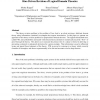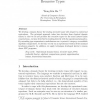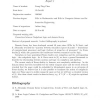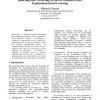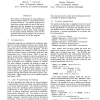127
click to vote
CORR
2011
Springer
14 years 5 months ago
2011
Springer
The theory revision problem is the problem of how best to go about revising a deficient domain theory using information contained in examples that expose inaccuracies. In this pa...
104
click to vote
TCS
2010
15 years 14 days ago
2010
We compare how computational effects are modelled in Classical Domain Theory and Topological Domain Theory. Both of these theories provide powerful toolkits for denotational sema...
115
click to vote
CORR
1998
Springer
15 years 1 months ago
1998
Springer
In this paper we consider the problem of theory patching, in which we are given a domain theory, some of whose components are indicated to be possibly awed, and a set of labeled t...
124
click to vote
ENTCS
2006
15 years 2 months ago
2006
We develop a domain theory for treating recursive types with respect to contextual equivalence. The principal approach taken here deviates from classical domain theory in that we ...
117
click to vote
CORR
2006
Springer
15 years 2 months ago
2006
Springer
of proposed research. A short bibliography is optional. Domain theory has been developed around 40 years since 1970s by D. Scott, and S. Abramsky revealed the "junction betwee...
117
click to vote
IJCAI
1989
15 years 3 months ago
1989
In this paper, we address an issue that arises when the background knowledge used by explanationbased learning is incorrect. In particular, we consider the problems that can be ca...
117
click to vote
IJCAI
1989
15 years 3 months ago
1989
We present a methodology for using analogy to derive programs based on a derivational transformation method. The derived programs are deductively closed under the rules in the kno...
AAAI
1994
15 years 3 months ago
1994
Most Artificial Intelligence programs lack generality because they reason with a single domain theory that is tailored for a specific task and embodies a host of implicit assumpti...
125
click to vote
AAAI
1993
15 years 3 months ago
1993
learning (EBL) component. In this paper we provide a brief review of FOIL and FOCL, then discuss how operationalizing a domain theory can adversely affect the accuracy of a learned...
121
click to vote
IJCAI
1997
15 years 3 months ago
1997
When dealing with narrative texts, a system must possess a strong domain theory, and especially knowledge about situations occurring in the world. Otherwise the system must envisa...
